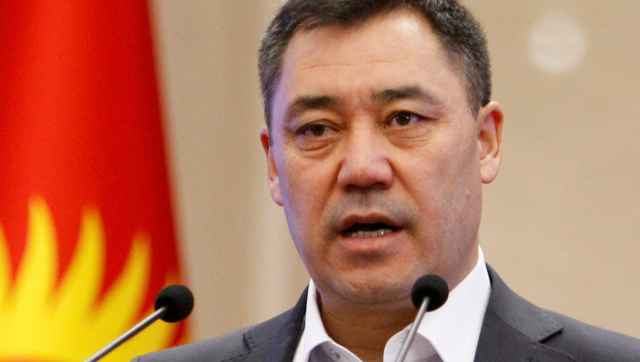In a notable statement during his recent visit to China, Kyrgyzstan’s Prime Minister Akylbek Zhaparov revealed aspirations to export pristine glacier-sourced drinking water. Speaking during his meeting with Wang Da, the head of Qingdao Laoshan Mineral Water Company, Zhaparov emphasized the untapped potential of the nation’s water resources. “We are positioned at the very origins of glaciers and stand ready to supply pure drinking water to China, as well as to countries across Europe and Asia,” Zhaparov affirmed. He underlined the value of gleaning insights from enterprises like Laoshan, a significant Chinese beverage manufacturer known for producing bottled water, barrelled water, and soft drinks. Wang Da displayed keen interest in the idea of importing water from Kyrgyzstan to China, with the eventual goal of reaching European markets. Post-discussions, both parties reached an accord to arrange further meetings to deliberate on the concept and formulate a concrete plan of action. China’s long-standing water scarcity issue is well-documented. Despite accommodating a fifth of the global populace, the country has access to merely 6% of the world’s freshwater reserves, as per Earth.org. Adding to the challenge are climate change and industrial pollution, which continue to strain China’s water supply. Chinese government data indicates a 9% surge in the nation’s overall water consumption between 2000 and 2015, accompanied by over a 50% rise in wastewater discharge. Beijing has recently initiated several initiatives to enhance water distribution regionally, including the “sponge city” project aimed at capturing and recycling rainwater. Kyrgyzstan boasts an impressive array of over 9,900 glaciers and perpetual snow cover, spanning approximately 6,680 square kilometers. Satellite data from the United Nations Development Program verifies this. Glaciers account for around 3.3% of the nation’s total land area and hold a substantial estimated volume of 600 billion cubic meters of water. However, local media reports highlight Kyrgyzstan’s recurrent struggles with water shortages attributed to subpar water distribution infrastructure, such as technical water wells and potable water reservoirs. Just last month, sections of the capital city Bishkek experienced water rationing due to a cold spring delaying glacier thawing. Consequently, water levels at the Orto-Alysh water well, which supplies the city, plunged to exceptionally low levels.
Wang Da displayed keen interest in the idea of importing water from Kyrgyzstan to China, with the eventual goal of reaching European markets. Post-discussions, both parties reached an accord to arrange further meetings to formulate a plan
Advertisement
End of Article


)

)
)
)
)
)
)
)
)



